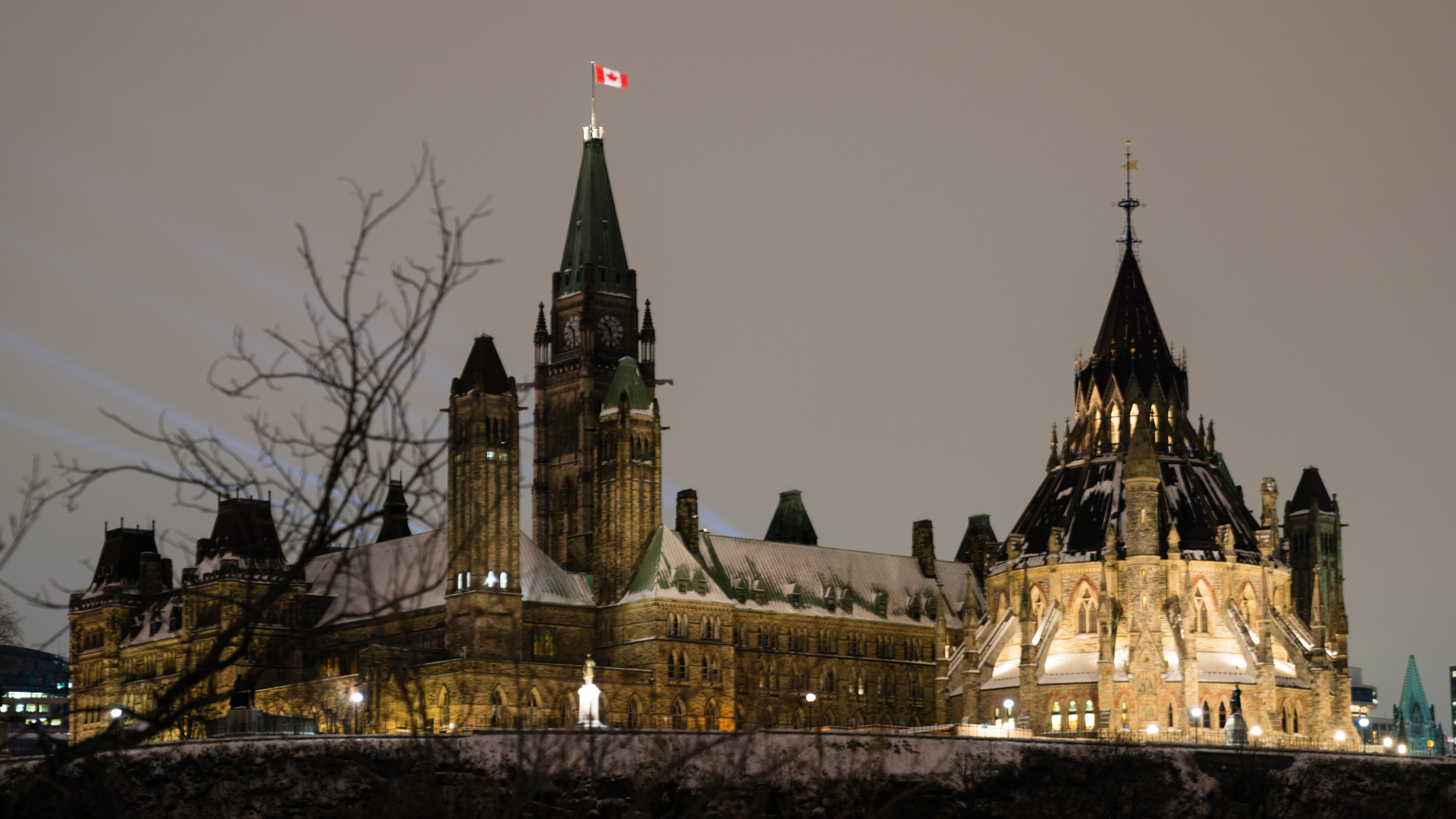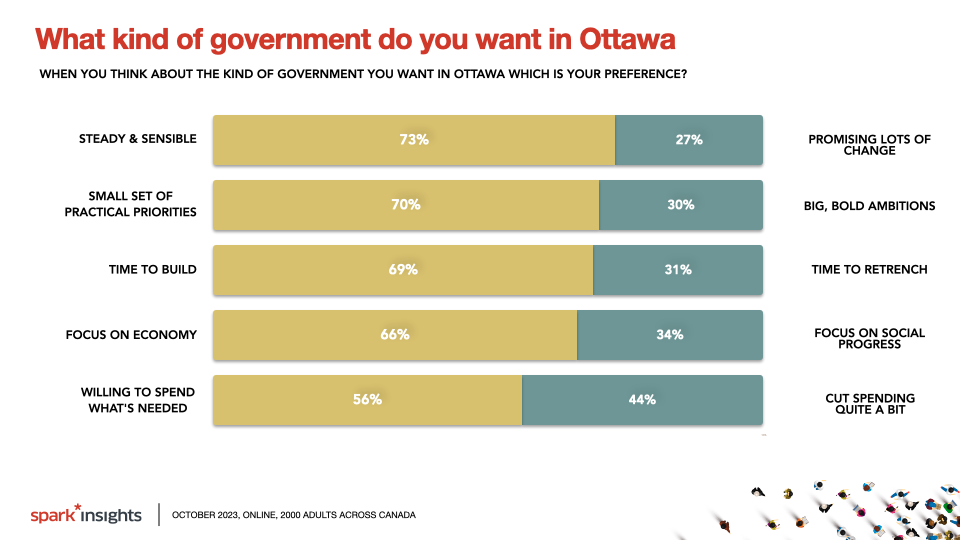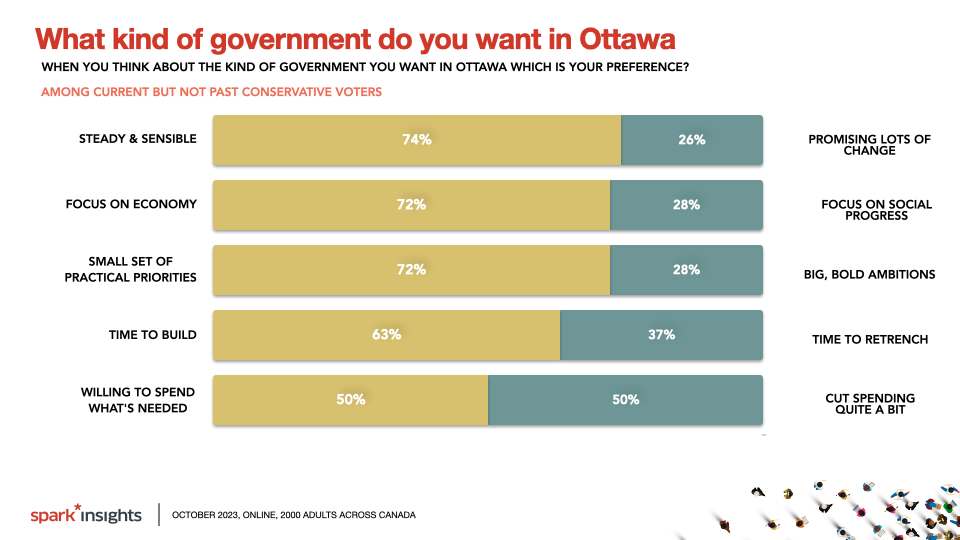Subscribe for more!
Subscribe to our newsletter for insights and articles on wide ranging issues including reputation management, branding, advertising, awareness, advocacy, and communications. You can unsubscribe anytime.
Follow us on social:

When voters signal a restlessness for change, sometimes it’s because they want a big new vision, and lots of fresh new ideas. That’s not exactly the mood of most Canadians today.
We asked 2000 people across Canada a series of choices and asked “when you think about the kind of government you want in Ottawa which is more in line with your personal preferences?"

A closer look at voter subgroups reveals that there are differences in preferences, but perhaps not as large as might be expected. Two thirds of NDP voters prefer a smaller set of practical priorities and steady and sensible over big bold ambition. They are less worried about spending and more interesting in social progress compared to others. Among those who are newly aligned with the Conservative Party, steady and sensible, economy focused and with a small set of priorities is the decided preference. These voters are more concerned with spending but only half want to see major cuts, and most prefer “build” to “retrench”.


According to Bruce Anderson: The mood expressed in these findings is in keeping with a longstanding Canadian preference for improvement and growth, conditioned by pragmatism and a sense of doing what is possible and affordable. A focus on the economy is not surprising, given the cost of living, inflation and interest rate anxieties now. While there is an elevated level of concern about spending, Canadians don’t seem in a mood to slash.
These preferences help explain why the Conservative Party has wind in its sails at the moment – their messages reflect a narrower focus on fewer priorities, mostly economic. While Pierre Poilievre at one point in time might have come across as an advocate of more radical change, recently he’s been stressing a smaller set of policy remedies – looking more like a steadying, sensible choice rather than a firebrand.
In contrast, much of the messaging of the Trudeau government has been about bigger, bolder ambitions, a lot of which have had to do with social, rather than economic priorities. The Liberals have also appeared to have a long list of priorities, which can sometimes leave people missing what the government has done that serves their interests. This positioning was more aligned with the public mood in the past, than it is today.
These results indicate a path for the Liberals to strengthen competitiveness – more likely to do that by shifting the way they talk about the future and the goals they would set for government: putting more emphasis on how to get things done, practically and at low cost. A time to build, but with focus, pragmatism and affordability more front and centre. For the Conservatives, the data indicate that a steadying and focused rather than radical change is helping them become a less worrying alternative than they might have seemed in the past.
spark*insights is led by Bruce Anderson, one of Canada’s leading and most experienced public opinion researchers. From polling and research to analysis and guidance, we help organizations, uncover the factors driving or influencing public perception to gain valuable insights into the shape and movement of the landscape.